
Washington D.C., Jul 26, 2018 / 01:40 pm (CNA).- Cardinal Séan O’Malley of Boston released a statement Tuesday in response to the unfolding allegations concerning Cardinal McCarrick.
The statement said the Church needs to respond with “more than apologies” to sexual misconduct cases. It identified a “major gap” in Church procedures for handling accusations against bishops, and made suggestions for addressing that gap.
Cardinal O’Malley enjoys a reputation for being a “zero-tolerance” bishop on matters of sexual abuse, and he is widely perceived to be the Church’s most credible voice on the subject. Given his stature, especially on matters of sexual abuse, many Catholics were eager for his response to the McCarrick scandal.
Interventions by Cardinal O’Malley have become the sober punctuation marks to major abuse stories. His public response to Pope Francis’ dismissal of victims following the papal visit to Chile was widely praised as a brave intervention, one which caused the pope to dramatically reassess the situation in that country.
Widely credited with successfully reforming dioceses plagued by abuse scandals, first in Palm Beach and most famously in Boston, he was seen as a natural choice to lead the newly-established Pontifical Commission for the Protection of Minors in 2014. He also serves on the C9 Council of Cardinals, Pope Francis’ advisory committee, tasked with helping the pope to review the governing structure of the Church.
O’Malley’s statement yesterday was typical of his approach to sensitive issues – measured, focused, and thoughtful.
“Transparent and consistent protocols are needed to provide justice for the victims and to adequately respond to the legitimate indignation of the community,” he wrote.
“The Church needs a strong and comprehensive policy to address bishops’ violations of the vows of celibacy in cases of the criminal abuse of minors and in cases involving adults.”
If his diagnosis of the problem is instinctive, Cardinal O’Malley’s prescription is equally straightforward.
“Three specific actions are required at this time. First, a fair and rapid adjudication of these accusations; second, an assessment of the adequacy of our standards and policies in the Church at every level, and especially in the case of bishops; and third, communicating more clearly to the Catholic faithful and to all victims the process for reporting allegations against bishops and cardinals.”
In short, Cardinal O’Malley proposed that in future, allegations against bishops need to be handled as a matter of highest priority; that a new, purpose built, system be put in place to handle complaints against bishops; and that these necessary reforms be clearly announced, so there can be no doubt about how such cases should be handled in the future.
It is a simple, clear, and practical proposal.
But it is not a new proposal. And it is not immediately clear what new procedures the cardinal has in mind, especially because in recent years the Holy See has announced and developed the kinds of procedural reforms O’Malley seems to be calling for, and he had a hand in some of them.
For years, canon law has provided for the Congregation for the Doctrine of the Faith to receive accusations of sexual abuse against a bishop and to put them on trial. Such trials do happen, albeit very rarely, and Pope Francis has made several announcements and changes designed to strengthen those procedures.
In June 2015 the pope announced his intention to create a new tribunal within the CDF, specifically to conduct trials of bishops accused of negligence in relation to sexual abuse allegations.
That announcement actually followed a proposal submitted to Francis by Cardinal O’Malley in his role as President of the Pontifical Commission for the Protection of Minors – itself a creation of structural reforms undertaken by the pope.
In June 2016, Pope Francis issued the motu proprio letter Come una madre amorevole. This legal document referenced the existing canon law provisions for the removal of a bishop from office for “grave reasons” while fleshing out what those grave reasons could be.
It also outlined a new legal mechanism for assessing and trying accusations made against bishops, especially when charges involved negligence in cases of sexual abuse of minors or vulnerable adults.
While it did not create the CDF tribunal promised in 2015, Come una madre laid out a usable legal framework which, together with existing canon law, would allow Vatican authorities to receive allegations against bishops, convene a legal process, and submit a finding and recommendation for removal to the pope.
Two years later, and despite several high-profile situations that seem to many to meet the process’ criteria, it has yet to be used.
In short, if one thing has not been lacking in the Church’s response to allegations against bishops it is the creation of new structures and procedures.
Perhaps O’Malley has in mind the specific mention of bishops in the USCCB’s policies governing sexual abuse allegations, or adding to those new sections dealing specifically with bishops. It is also possible that he means identifying a clear point-person in the United States who could receive complaints about bishops, and act on them.
Those ideas could be useful. But, like all legal processes in the Church, deployment of good policies depends upon the decisions of diocesan bishops, Vatican officials, and the pope.
Many canonists, who have watched the emergence of new processes and systems in recent years, note that persons, not institutions, must be the ones to make the law actually work.
—
Amid the maelstrom surrounding Chile’s recent sexual abuse crisis, Pope Francis acknowledged his direct responsibility for failings in the way the matter had been handled, offering an apology for his “serious mistakes.”
Later, writing to Chile’s bishops, he lamented “one of our main faults and omissions: not knowing how to listen to victims.” He included himself among those who had not listened, and promised to do better.
“I was part of the problem” he said directly to victims of abuse, while meeting with them in the Vatican this May.
Leaving aside still-unanswered questions about how, exactly, the pope was a part of the problem, Francis set a template for bishops to follow as they interacted with victims– one that many noted was personal, direct, and humble.
Many Catholics in the U.S. are now looking for the same from their bishops, for a recognition that beyond institutional failures, there were personal faults that allowed McCarrick to continue in ministry amid decades of complaints.
Absent the will of bishops themselves, no new procedure or structure can actually prevent a repetition. There is, indeed, a thin line between building a clear and effective process and a building a culture of bureaucratic proceduralism, which protects everyone but those who bring allegations forward- a lesson the Church has learned in abuse scandals around the world.
To the Chilean bishops, rather than calling only for more processes, Francis urged that bishops “generate a culture of care which permeates our ways of relating, praying, thinking, of living authority.”
—
When then-Archbishop McCarrick was appointed to lead the Archdiocese of Washington in 2000, Father Boniface Ramsey contacted the apostolic nuncio, Archbishop Gabriel Montalvo, to report the allegations of McCarrick’s misconduct with seminarians he had heard from his own seminary students, the New York Times reported.
Although he put his concerns in writing, at the explicit request of the nuncio, no action was taken and no one knows where that letter ended up.
Sources have told CNA that Ramsey’s experience was not unique, and other complaints about sexual misconduct also went seemingly unheard at the nunciature during Montalvo’s tenure.
Fifteen years later, after seeing McCarrick at the funeral of Cardinal Egan, Ramsey wrote to Cardinal O’Malley, again relating what he knew about “a form of sexual abuse/harassment/intimidation or maybe simply high-jinks as practiced by Theodore Cardinal McCarrick with his seminarians and perhaps other young men.”
Cardinal O’Malley’s statement explains what happened next:
“Recent media reports also have referenced a letter sent to me from Rev. Boniface Ramsey, O.P. in June of 2015, which I did not personally receive. In keeping with the practice for matters concerning the Pontifical Commission for the Protection of Minors, at the staff level the letter was reviewed and determined that the matters presented did not fall under the purview of the Commission or the Archdiocese of Boston, which was shared with Fr. Ramsey in reply.”
Fr. Ramsey’s letter was, as Cardinal O’Malley explains, handled according to proper procedures. The Commission is not a legal department charged with prosecuting allegations, nor did the allegations concern the Archdiocese of Boston. But while the response was technically correct, to some Catholics it seemed to illustrate that a response can be procedurally correct and yet pastorally, and perhaps morally, negligent.
Cardinal O’Malley’s responsibility as a member of the pope’s abuse commission is, in part, to foster and promote a culture of responsibility towards accusations of sexual abuse and misconduct.
In light of that, many Catholics are asking why his office would not immediately forward the letter to the competent Vatican department, or at the least bring it to the cardinal’s personal attention, rather than offer a a response that might be characterized as “not our department?”
It is worth noting that Cardinal O’Malley said he did not “personally receive” the letter from Fr. Ramsey’s reporting allegations. Some critics say this response looks like the cardinal distancing himself from his office’s systems and procedures, while at the same time claiming that more systems and procedures will be the remedy.
All bishops get voluminous amounts of mail, and because of O’Malley’s position, he likely gets more than his fair share. Some of that is hate mail, or incomprehensible rambling, but some of it is important. The cardinal’s office obviously needs procedures to assess that correspondence.
But Cardinal O’Malley has discretion over inter-office mail procedures in the chancery of the Archdiocese of Boston; nothing stops him from ensuring he does “personally receive” all letters making allegations of sexual abuse.
The cardinal has not indicated if he will personally review all such communiques in future.
A spokesman for the Archdiocese of Boston declined to respond to questions from CNA, referring a reporter to the cardinal’s July 24 statement.
—
In the past 15 years, the Church has learned that victims of abuse, and all Catholics wearied by constant scandal in the Church, do not ordinarily want to hear about a new charter, tribunal, or special procedure. They generally say they want to know that their bishops hear them, and that their bishops care enough to act.
After Chilean victims of abuse met with Francis earlier this year, they praised the pope for listening, for being empathetic, for taking responsibility, and for promising change. They did not seem to be calling for more prudent managers or more efficient processes. They were calling instead for shepherds with the moral courage to be their brother’s keepers.
Whether O’Malley’s answer will satisfy remains to be seen. How the USCCB, the Archbishops of Washington and Newark, and other prominent figures will respond the crisis McCarrick has begun also remains to be seen.
If you value the news and views Catholic World Report provides, please consider donating to support our efforts. Your contribution will help us continue to make CWR available to all readers worldwide for free, without a subscription. Thank you for your generosity!
Click here for more information on donating to CWR. Click here to sign up for our newsletter.






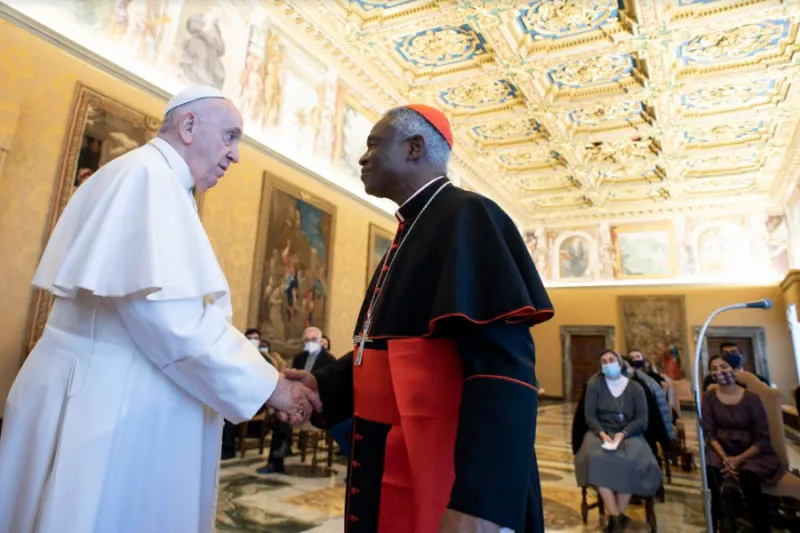
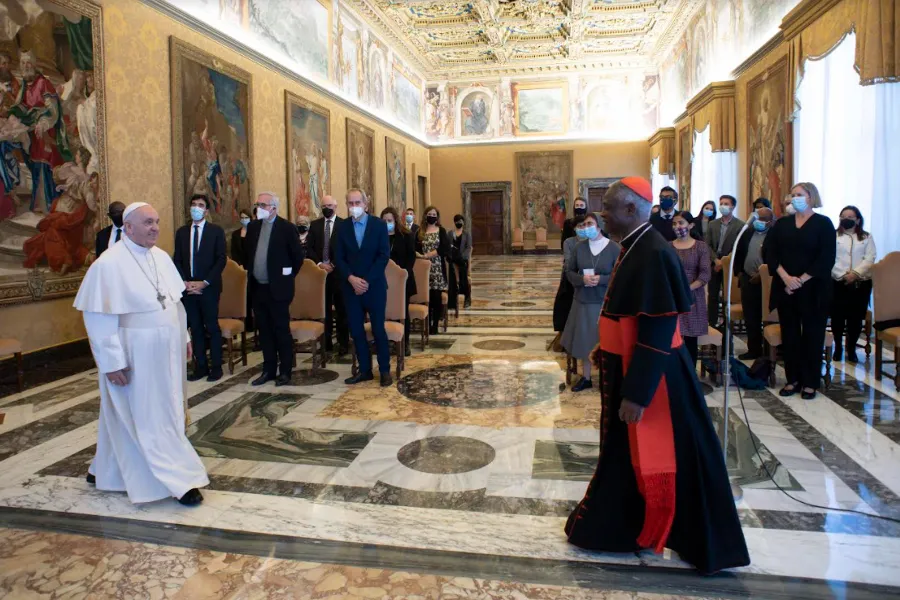
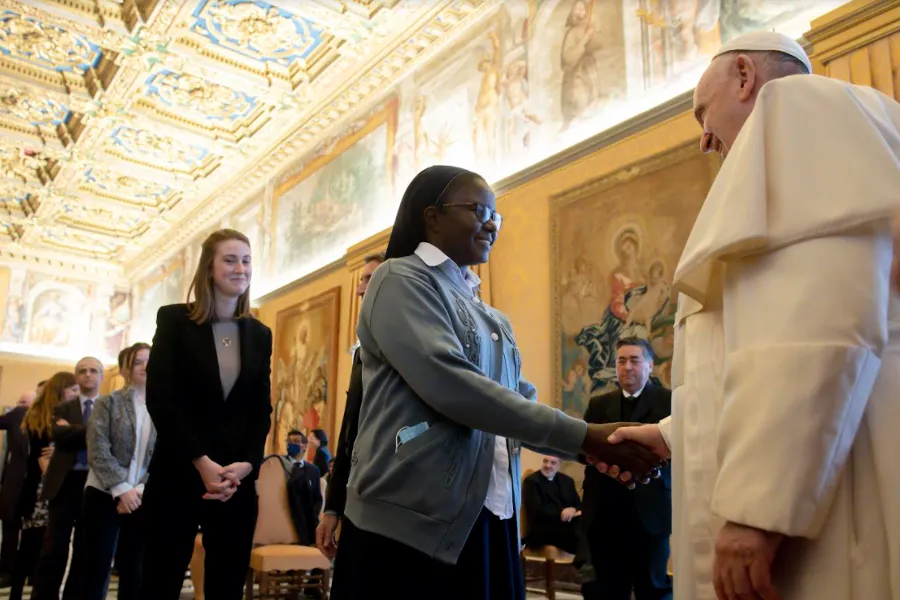
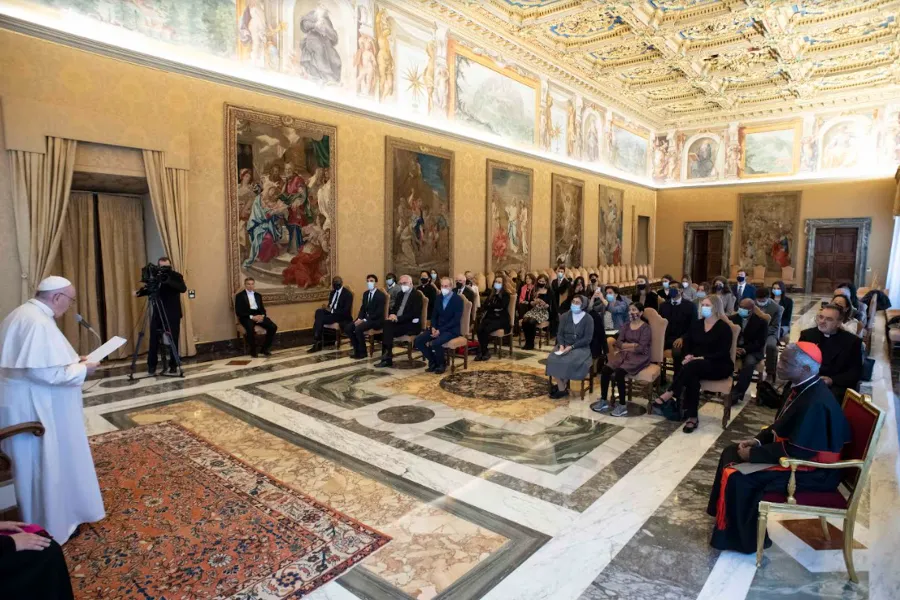
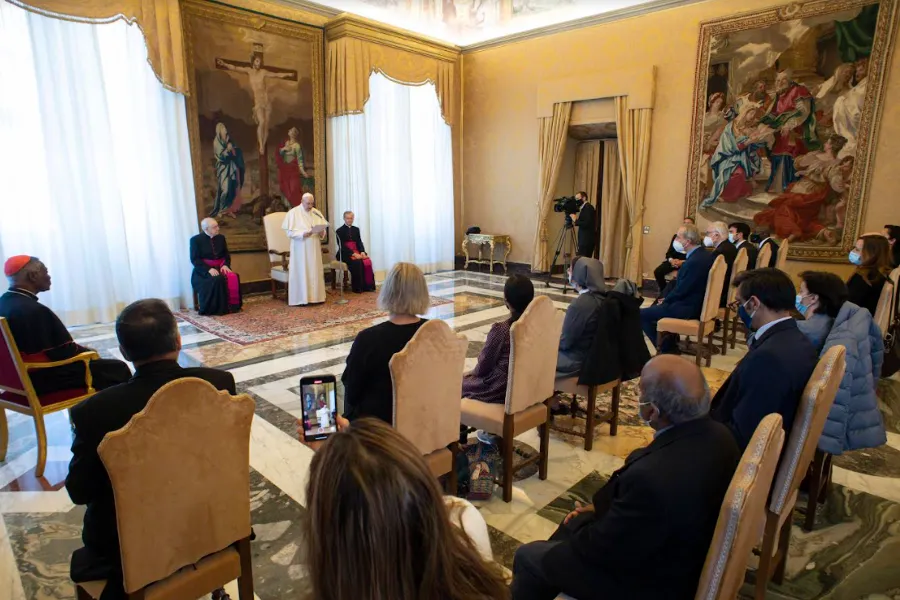
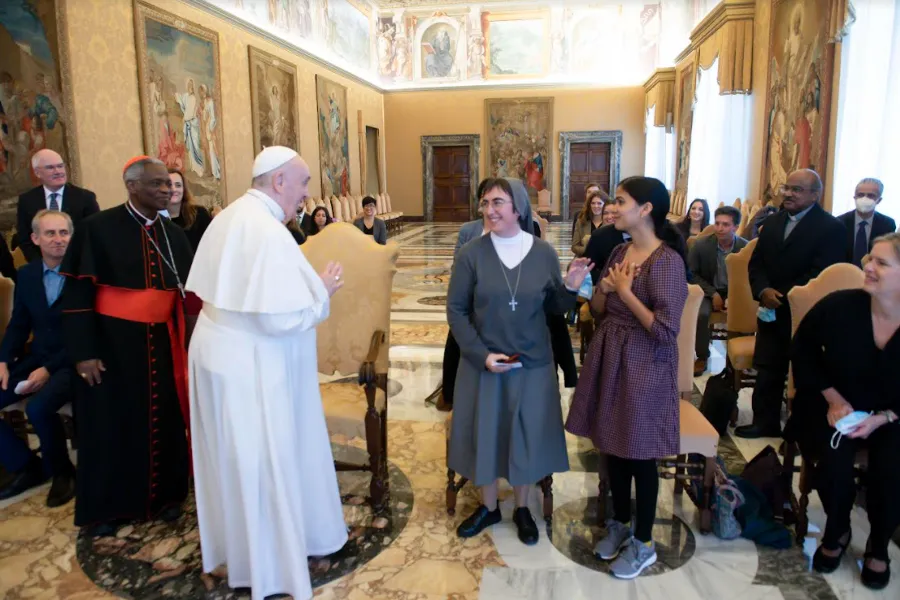
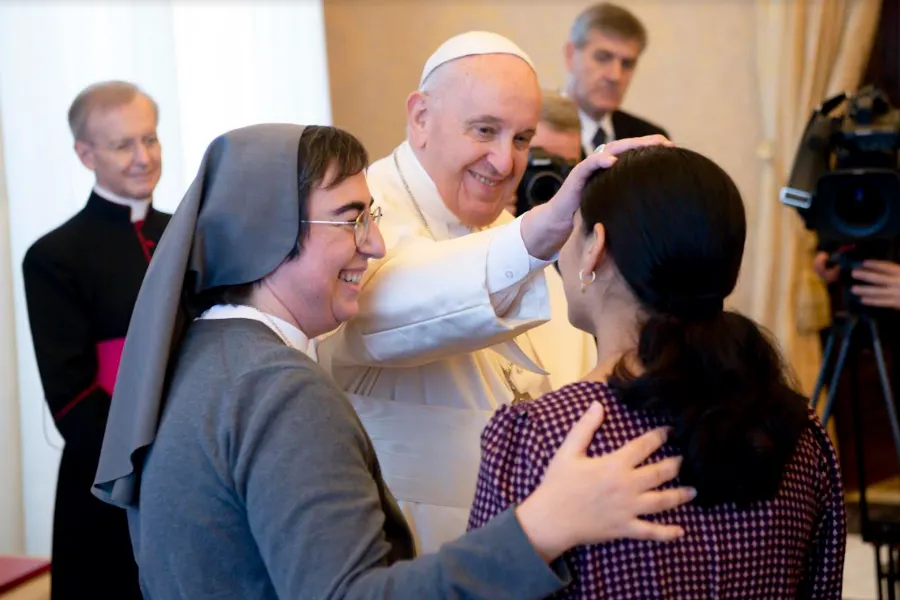
A statement of sympathy which avoids any mention of the causes (e.g. the type of people engaging in homosexual behavior, including ephebophilia) and proposes nothing about pro-active prevention but rather the proper way to react.
This statement is meaningless. Everything coming from Rome is meaningless. Everything coming from the USCCB is meaningless. These…ahh…ahem…men surrendered their moral authority years ago and now their spiritual authority is gone, too.
Lesson: Time to trust Christ. And perhaps start praying that He takes pity on those faithful who try to learn and keep His and His Father’s commandments because there is a house cleaning coming and it ain’t coming at the hands of men, that is clear.
Remember the Bible says in 1 Peter 4:17
For it is time that judgment begin at the house of God. And if it is first from us, what shall be the end of those who do not believe the Gospel of God?
The bishops need to read that and believe and repent.
Brian, I have to agree with you. The problem ultimately is homosexuality in the hierarchy. There’s no effective solution to that problem but to extirpate it. Anything else is, at best, palliative. Perhaps this has to be put in place, the rule that any cleric vowed to celibacy automatically loses his office and his right to act as a priest if he engages in a genital act with another person, whether male or female, minor or adult.
The issue might be reduced if not eliminated if they ordained women.
One word: lesbians.
MorganB’s solution for most everything is woman priests.
No. Mainline Protestant churches tried that, and it destroyed them.
Absolutely right. The tipping point has been reached. There is no earthly solution to the current abominations.
I suspect Our Lord will begin to settle all scores very shortly.
In the meantime, faithful Catholics, keep your wallet and checkbook closed.
It’s depressing and infuriating that bishops need policies to know that raping people and lying about it is wrong. What is wrong with these people?!?!
What is wrong with these people?
A lot. They are morally and spiritually bankrupt.
So here are the facts surrounding the Ramsey/OMalley communication:
#1. Fr. Ramsey was aware of McCarrick’s sexual abuse of seminarians in his diocese
#2. Fr. Ramsey communicated his concerns in writing to the Papal Nuncio and nothing happened.
#3. Fifteen years later and McCarrick is still a cardinal bishop in good standing, Fr. Ramsey writes once more but this time to a US Cardinal with close ties to Rome and the sexual abuse scandal that has been plaguing the Church
#4. O’Malley’s office receives Fr. Ramsey’s letter and does not see fit to give it to O’Malley because his Commission deals with abuse of minors.
#5. Nothing is done by our hierarchy after paying out billions of dollars in damages, thousands of lives have been destroyed and who knows how many men gave left the priesthood and how many Catholics have abandoned the faith.
So O’Malley expects us to believe his story. Sorry, but I do not.
Good piece.
I wish I could extend Cardinal Sean the same respect the author has done here. I cannot.
Blessed are the pure of heart, for they shall see God.
Pope Francis, applauded and abetted by “his team,” have made a 5 year project of dismissing concern about sexual morality, and in concert with that, mocking those who practice Canon Law. Both of these things are necessary for justice to prevail over the evil of unchastity and sexual abuse.
Such men are incapable of justice, because of their dispositions against moral teaching and against justice under the law.
The problems are written on their hearts.
Of course, this problem is not just them. It is the very nature of the prevailing “consensus” surrounding and infesting the Church right now. We assume everyone is nice, and we don’t need to follow moral teaching, or enforce laws.
Pope Francis was the hand-picked candidate of McCarrick, Danneels, Mahony et al. The latter 2 are notorious sex abuse coverup artists. So was McCarrick, via his phony “child protection program,” in addition to his sexual abuse of teens and seminarians, the very crimes that the 2002 Crisis Report called out for resolution: homosexual predation (81%).
“Team Bergoglio” (as Austin Ivereigh calls his team) is a big part of the problem. For a solution to start, they have to resign. They are incapable of doing justice, because they take justice for granted.
The statement “I did not personally receive” does not mean he was not shown the letter or that the matter was not discussed with him by his staff. It is not believable that Cardinal O’Malley was not told of the letter or did not know about McCarrick. If the Cardinal or his office would not take this information to the higher-ups in an effective way, , why should a priest expect that similar complaints from the clergy would be handled correctly? Again, it is not believable that O’Malley was not told or made aware of the matter. And if his statement is true, then please let him or his staff tell us how the matter was handled and to what office or individual was the matter referred..
“I did not personally receive”…LOL. That is boilerplate legalese from well paid Boston lawyers.
Nice one, Sean.
To coin a phrase: “Lock them all up”. The Sacred Scriptures together with Tradition contain all the “high standards” and “clearer policies and procedures” that were, are, or ever could have been needed. The filth of this entire episcopal college, including its head, needs to be swept out. McCarrick and O’Malley deliberately removed bishops from the USCCB’s sexual abuse charter; O’Malley’s media-ballyhooed role in charge of the Vatican sexual abuse protection has accomplished absolutely zero in 5 years when its results are examined; O’Malley himself has just this week weaseled our of responsibility after he received a credible report from a priest on massive sexual abuse by one of the most powerful cardinals in the Church claiming he never “personally received’ it; Pope Bergoglio has been deluged with one shocking scandal after another involving Vatican homosexual orgies and flagrant homosexual child rape and seminarian sexual abuse overseen by his own 9-cardinal cabinet and his cardinal electors and cardinal promoters and has done nothing, letting the perpetrators “retire”. It needs to be shouted from the housetops that Pope Bergoglio’s Vatican and the entire hierarchy of the Church is a cesspool of corruption, perversion, depravity, and heresy.
We’re dealing with a culture long ingrained in the clerical life of rationalization, friendships, false compassion. Homosexuals within the clergy that practiced without detection appearing discreet presenting themselves as friend and brother in Christ. Many achieving good. Cardinal O’Malley is in that mix as compromised bystander offering what amounts to platitude. Ideas will come forward as before even outrage by some clerics though we can’t expect any semblance of a Church purified of the scourge of a most deviate behavior. Compounding our hope for cleansing is a change of perspective initiated by the Pontiff and advisers who promote a “refreshing change” as Benedict XVI allegedly commented. Where do we stand if not in the midst of a radical accommodation of our worlds growing permissiveness in respect to sexual expression and the family. We either comply with this direction or we turn to the Author of life and the Gospels.
In St. Paul’s letters to Timothy, it’s quite clear that he felt that bishops are to be held to a much higher standard than either priests or laity. As such. I’m thinking that there should be a minimum standard of conduct for many things beyond which a bishop should be removed from office.
“But Cardinal O’Malley has discretion over inter-office mail procedures in the chancery of the Archdiocese of Boston; nothing stops him from ensuring he does “personally receive” all letters making allegations of sexual abuse.”
….especially of a cardinal of the Church. His weak explanation is an insult to every thinking man, woman and child in the Church. Even if it did not fall under the category of “child abuse,” the secretary I would, think would have brought it to his attention. If not, what is wrong with the secretary? How could someone so inept be in that position?
OMalley, Tobin, Wuerl and Farrell all need to resign because of their proximity to McCarrick and imputed knowledge of his deviant behavior, regardless of whether or not they actually knew. Just as when a CEO steps down from a company after a scandal even if the CEO wasn’t directly involved. Otherwise, the Church won’t be able to move forward. This is like the #METOO movement in many ways. Time for these guys to swallow their pride and step aside for a new generation. If they are true Christian servants, they will do so.
Mr. Leone,
You have a top rate idea. If these four men were removed from office, it would finally send a message to the public that the Church might be getting serious.
But more importantly, all other American bishops would also take notice that they might be next.
But is the Vatican serious enough to take such action?
Dolan is another one who should resign. He covered plenty in Milwaukee. He did not want to “rock the boat” so he could get to NY. His “shock” about McCarrick rings hollow. He has been in NY how many years? He just heard about this two weeks ago? I don’t think so.
One would hope that at least in the American episcopate the various “cliques” or “schools of thought” are conference calling and acknowledging that they are in deep crisis.
That they would be at that point of self-recognition is itself doubtful. They are notorious for their advanced state of self-deception, fleeing persistently from acknowledging crisis and always require having their face shoved into the fire to get them to wake up. Vast numbers of them are in protracted adolescence, are fully subscribed to a leftist-permissive-socialist agenda, and are academically challenged by the erroneous post-conciliar theorizing substituted for a formation in theology / philosophy / history.
That given there are a few mature men who are reasonably faithful and cognizant and they need to light a fire under their confreres and declare “emergency.” And this awareness of crisis need be communicated to the worldwide hierarchy. They – worldwide – have madly spent whatever credence they have retained until now in the post-Christian world. They are on the edge of social eradication at their own hand. Their base – us – find them at least “inadequate,” and most often scandalously unfaithful, duplicitous and revolting.
They need take some of their two hundred million and hire the best minds globally in crisis management. This isn’t going to be fixed by pious disingenuous aphorisms, admonitions to mercy and forgiveness and bold calls to obedience to ecclesiastical authority.
They – as a body — particularly those at the very top – are their own worst enemy. How to responsibly – civilly and theologically – dismantle the denizens of the episcopacy and replace them with men faithful to “the mission statement” [the perennial Magisterium] is going to be a herculean effort. But this is a moment when ecclesia can look to secular institutions and learn how to reconstitute itself – and that always means reclaiming identity.
Those who wish to be of another entity or resist are required to “move on.”
The first step is acknowledging heart fully and with full cognitive awareness “we have screwed up and we own it.”
Men of faith can do this. I am not hopeful, but with God all things are possible. Numbers don’t matter. Faith does matter.
There was once a time when the neighborhood Priest, the Bishop, The Cardinal and the Pope were automatically trusted.
Now that trust is gone for the most part.
What to do? Pray and be silent for a time every day – that’s a start.
No it will not be enough. If the homosexual culture long entrenched within the Catholic Church continues to sound alarms make limited gestures that produce zero results. Except when there’s no choice like the Cardinal’s expose. I’ve been a priest many years and knew of abuse. Perhaps my mainly missionary life didn’t expose me to its staggering extent. Just read today’s account by TCT editor Brad Miner who converted to Catholicism 1973 and was shortly “hit on” three times by priests who tried to solicit him after attending Mass. How he remained faithful is nothing short of an heroic act of faith. The culture is so deeply embedded among priest and bishop networks that it will require Hierarchy leadership we simply don’t possess in particular a Pontiff’s authority from one whose record is not sterling. Texas Bishop Carlson in a Catholic Register article suggested bishops unite but doesn’t say he will lead such an effort with Cardinal DiNardo and the USCCB. Although discipline of bishops is reserved to the Pontiff it would be a start. The Pontiff would have to respond. Unfortunately that’s where it might end. Nonetheless all of us clergy and laity are morally obliged to call them out and demand meaningful response. Otherwise do we presume Christ will not?
” The Pontiff would have to respond.”
Would he? We still haven’t heard a word in responce to the dubia, have we?
Well Leslie I hear you though the rationale is it would force his hand. Like you I don’t believe he would approve and hopefully it might wake our somnolent bishops to be assertive and confrontational [and what a happy shock]. Insofar as our Pontiff I have little left other than the virtue of hope.
I’m not sure if Francis deserves the praise given above. He admitted error in the Chile crisis, but that affair is far from over – it now centers on Cardinal Errazuriz, a C9 member who, because he is retired, did not sign the resignation letter from all Chilean bishops. In Honduras, Bishop Pineda, long surrounded with shocking charges, has finally resigned, but the Honduran bishops are digging in their heels in defense of the Honduran hierarchy, accusing Edward Pentin, probably the best Catholic journalist, of dishonestly reporting a widespread pattern of abuse in the Honduran Church. The top of the Honduran hierarchy is Cardinal Maradiaga, another member of the Pope’s C9. Let’s not forget that Pope Francis was involved with two other leading Churchmen heavily tainted by abuse scandals. Belgian Cardinal Danneels has claimed he helped elect Francis and played a key role in the marriage synod, despite serious charges of ignoring serious sexual abuse. Francis gave an honorary task to disgraced and resigned Cardinal Mahoney of LA (like McCarrick on of America’s leading bishops fifteen years ago) before local protests made Mahoney withdraw. I see no reason to think that Francis will take the vigorous actions required now. But perhaps he’ll allow another commission, or report or something else that sounds good but has no meaning. I pray I’m wrong.